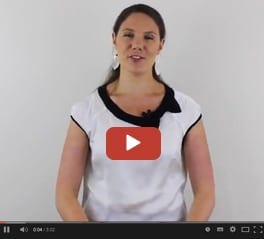Let’s talk about getting to know your own body and what’s right for you.
A lot of patients come to us and they are really out of touch with their bodies. I would like to explore the concept that signs and symptoms are your body’s way of telling you that something’s wrong. When you get bloated, tired, have skin problems or anxiety, these symptoms are your body’s way of saying ‘I am out of balance and I need help’.
What we actually want to do is retrain you so that you can start listening and tuning in to your own body. And the first step is getting back to normal. So once we’ve actually resolved these symptoms and things are going well and you are feeling good again, you’ll start to notice when things go out of whack.
The trick is to really observe your body, instead of ignoring it. We are very stoic in Australia – you are taught if you have a symptom just ignore it. For example, if you have a sore tummy, someone might say to you, “oh you’ll be fine”. You probably think that these symptoms are minor and there’s nothing major going on. We are taught to just deal with it and ‘suck it up’. The problem is that when you do that, you really are ignoring your body’s language and you’re not really listening to the clues that it is out of balance and it needs help.
A good example would be when you have a cold or flu. Before you get a cold, there are these little warning signs that tell you that the immune system’s going down. You might feel tired, a little bit achy, might be having an off day but it’s not until the symptoms come that you think,” Oh I really didn’t feel that well the last few days”. Then you start getting a running nose and at that point you do something about it. You may try to get some more rest; you might take vitamin C or take a day off work.
Imagine if, when those early warning signs – when you started feeling achy and a little run down – you took vitamins and looked after yourself, the outcome would be that you may not even get the cold. Or perhaps you might not have it for as long or the severity may be minimalized. We really need to start tuning back in and listening to our bodies. So start observing, because when you do, you’ll know what’s going on and what’s happening to your body.
As you are going through the healing process and you start feeling better and better, remember what it feels like to feel good. And recall when you didn’t feel so good. If you do start feeling a bit off again, ask yourself what’s going on. Do I need to change my diet? Do I need to rest more? Do I need to check back with my practitioner in these early stages so that I can get on top of this and feel good again?



